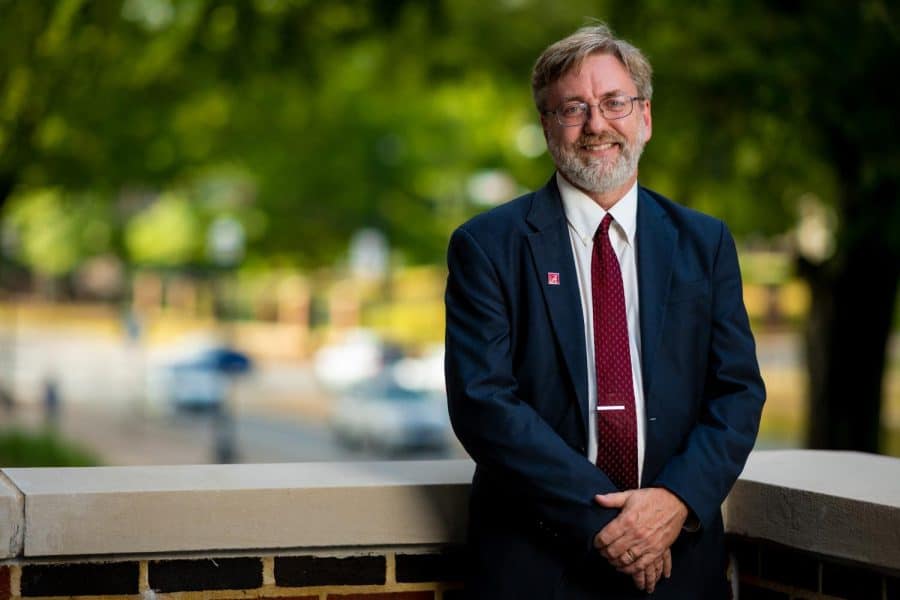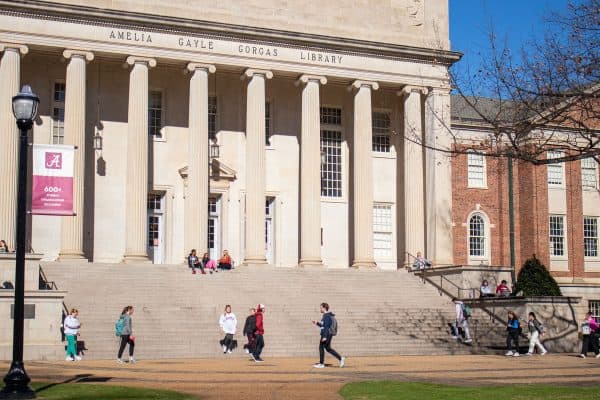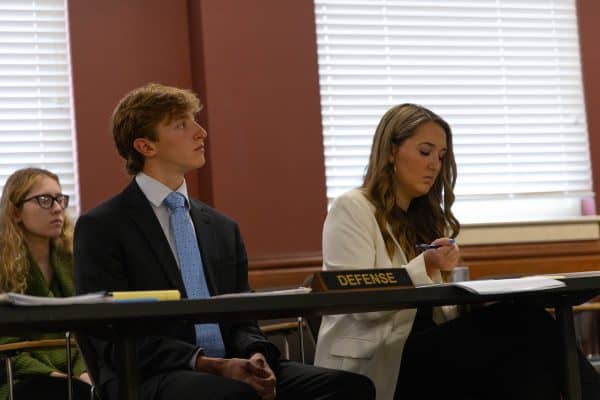Getting to know Dr. Butler, the new College of C&IS dean
November 9, 2022
Though traveling back and forth throughout the summer, Brian Butler has officially migrated south to begin his tenure as the dean of the College of Communication and Information Sciences.
Butler received his undergraduate degree in math and computer science from Carnegie Mellon University before continuing with both doctoral and MBA equivalent programs at Carnegie Mellon. Following his schooling, Butler took a job in information systems at the University of Pittsburgh.
After Butler’s time in Pittsburgh, he relocated to the University of Maryland where he quickly jumped from an associate professor to full time professor in the College of Information Studies. Following his time as a faculty member, Butler jumped to interim dean, and around a year later into the role of senior associate dean, his last role at the University of Maryland.
Replacing Mark Nelson, Butler left Maryland, his home for the past 11 years, to continue leading in the field of communications at The University of Alabama.
Q: How has Alabama subverted your expectations?
Butler: “Everybody’s asked me about the weather and how hot it was in the summer, and I was like ‘It’s 95 [degrees] and 85% humidity, that’s what August is for.’
As far as I can tell, Alabama does winter the same way University of Maryland does football, which is that there’s a thing called it, and for short periods of time there is it, but if you look at [it] for any length of time, it’s not really that.
In terms of Tuscaloosa as a place, what I found is a bunch of really interesting, very nice people. At the end of the day, that’s one of the things that’s great about Tuscaloosa. I won’t say it’s subverted my expectations, but if you just watched national media, you might not think that. I just found you’ve got a bunch of nice people doing interesting things, and it’s a fun place to be.”
Q: What are your favorite places and aspects of campus?
Butler: “I’d have to say my favorite place is Reese Phifer, because where else can you be in a building that’s got two fourth floors and three second floors? It’s a weird building, but it’s got lots of character. When I was here interviewing, one of the things I remember doing is actually sitting on the veranda out here … It just felt right; it felt very nice, and I would say that’s true about much of campus.
In terms of the faculty and staff and students, one of the things I’ll say, it’s been interesting for me to get used to, but I think is certainly very healthy for me, is there’s a, there’s very much a can-do attitude; do stuff and get it done … Alabama knows how to do a party right, and there’s a pride. People are proud of the University, people in the community are proud of the University, people in the business community are proud of the University, students, alumni; and you don’t always see that. So that’s been something I’ve really enjoyed about the students and faculty and staff, and really everybody at Alabama.”
Q: What is your biggest fear?
Butler: “Well, I have traveled to probably 10 or 15 countries, and one of the things you learn very quickly is if what you do is talk, which is what I do as a dean or a professor — probably as a parent if you ask my kids — if you are in a place where you don’t speak the language, that’s scary. That’s not a terrifying Halloween and haunted house fear, but not being able to communicate, not being able to be understood. I work very hard to try and be understood. You have that happen and you go, ‘I don’t matter.’”
Q: What kind of music do you listen to?
Butler: “I have a really weird mix. I have a playlist I listen to over and over and over again, which has a mix of Broadway show tunes, 1980s hard rock, Metallica and stuff like that, 1960s and ’70s folk. Actually, I just added a bunch of Johnny Cash.
I realized I had this playlist of Christmas music, and then I got to January and it’s like, ‘I can’t be listening to Christmas music.’ I was trying to figure out what I liked about it, and I realized what it was it was a mix of musical styles. There was some instrumental, a lot of lyrics, some new, some old, and so I set about to create a playlist that sort of was like that but wasn’t Christmas music, and that’s how I ended up with what I have. There are a couple Katy Perry songs in there, which that’s probably not usually found with Johnny Cash and Metallica.”
Q: What are your favorite shows/movies?
Butler: “So it’s not a particular show, but as ‘Game of Thrones’ and various other things come through, people are like ‘Do you want to watch this?’ I’m like, ‘Okay, so you’re telling me you’ve got a show that goes on and on forever, there’s multiple complex inner-woven strategies with people not being sure about what they’re doing.’ I said, ‘That sounds like what I do at work.’ I feel nicer at work, so I’m not comparing C&IS to ‘Game of Thrones,’ but give me a police procedural, so ‘CSI’ or ‘Law and Order’ or any of those kinds of things. Frankly, anything on British television with mysteries where something bad happens, people come in, they solve the mystery and it’s solved within an hour, it is a wonderful dream.
I don’t particularly like most sitcoms, because many sitcoms are built around the idea of one of the characters, quite often the dad, trying very hard and making a complete fool of himself. You want to talk about fears, there we go. Why would I want to watch that? I’m always concerned I’m going to do that.”
Q: What are you looking forward to about the University?
Butler: “One is getting to know people. For example, I was just over talking to the dean of engineering, Dean Henderson, both as colleagues but also getting to know the other parts of the University.
What I professionally like doing is building things, making connections that either people haven’t been able to make or haven’t gotten around to making, and I think C&IS is a great platform to do that. Because at the end of the day, communication and information is at the center of most things good and bad in our society. Amazing things happen when we can get it to work. Diversity and inclusion work when we can communicate with one another and listen and understand.
Whether it’s health or economics or business or science, I’ve had somebody the other day was saying, ‘Well, you can’t do science without math.’ I said, ‘Yes, you can. You can’t do science without communication.’
I know many scientists who don’t do much math, I know no scientist who doesn’t write or present or communicate with either colleagues or others. There’s just so many opportunities for the University as a whole, but certainly within C&IS to provide, the phrase I use is ‘life-changing education, transformative partnerships, groundbreaking research and creative work.’ C&IS is already doing some of that and is poised to do a lot more, and I think that’s true university-wide. There’s just a lot of best kept secrets, there’s a lot of things that we’re doing, and we can just do so much more.”











